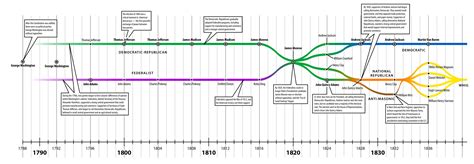The modern political map has been shaped by a multitude of pivotal events that have left an enduring impact on global power dynamics and international relations. Aside from the widely acknowledged events such as World War II and the collapse of the Soviet Union, there are many other significant occurrences that have dramatically altered the geopolitical landscape.

The Rise of China
China’s rapid economic growth and military modernization have propelled it to become a global superpower. Its increasing influence in Asia and beyond has challenged the traditional dominance of the United States and reshaped the regional balance of power.
India’s Emergence as a Major Player
India has emerged as a rising economic and geopolitical force in recent decades. Its growing population, vast domestic market, and nuclear capabilities have made it a major player on the world stage and a key player in South Asian politics.
The Partition of India and Pakistan
The partition of India in 1947 created two new independent nations, India and Pakistan. This event was marked by violence and bloodshed, leaving a lasting impact on the political and social dynamics of the region.
The Fall of the Berlin Wall
The peaceful collapse of the Berlin Wall in 1989 marked the end of the Cold War and the reunification of Germany. This event signaled the decline of the Soviet Union and the triumph of democratic values in Europe.
The Arab Spring
The Arab Spring uprisings of 2011 led to the overthrow of authoritarian regimes in several Arab countries. While some revolutions resulted in the establishment of democratic governments, others plunged into chaos and conflict. The Arab Spring has had far-reaching consequences for the political stability of the Middle East and North Africa.
Brexit
The United Kingdom’s decision to withdraw from the European Union in 2016, known as Brexit, was a major turning point in European politics. It has raised questions about the future of European integration and the rise of populism and nationalism across the continent.
The COVID-19 Pandemic
The COVID-19 pandemic of 2020 has had a profound impact on global politics. It has tested the resilience of governments, strained economies, and exacerbated social and economic inequalities. The pandemic has also highlighted the importance of international cooperation and solidarity in addressing global challenges.
The Rise of Artificial Intelligence
The rapid development of artificial intelligence (AI) is poised to transform the political landscape in the coming years. AI has the potential to revolutionize governance, warfare, and the economy, presenting both opportunities and challenges for nations and societies around the world.
Impacts of Major Political Events on the Modern Political Map
| Event | Key Impacts |
|---|---|
| Rise of China | Increased global influence, challenged traditional power dynamics |
| India’s Emergence as a Major Player | Growing economic and geopolitical power, key player in South Asian politics |
| Partition of India and Pakistan | Creation of two new nations, lasting impact on regional stability |
| Fall of the Berlin Wall | End of the Cold War, reunification of Germany, triumph of democratic values |
| Arab Spring | Overthrow of authoritarian regimes, political instability in the Middle East and North Africa |
| Brexit | Withdrawal of the UK from the EU, rise of populism and nationalism |
| COVID-19 Pandemic | Global economic and social crisis, highlighted importance of international cooperation |
| Rise of Artificial Intelligence | Potential to transform governance, warfare, and the economy |
Tips and Tricks for Understanding Political Events
- Stay informed: Read reputable news sources and follow expert analysis to keep abreast of current events and their potential consequences.
- Analyze motivations: Consider the underlying reasons behind political actions and decisions to gain a deeper understanding of their impact.
- Look for connections: Recognize the interconnectedness of political events and their ripple effects on national and international affairs.
- Study history: Learn from past experiences to better anticipate and respond to emerging political challenges.
- Engage in discussions: Engage in respectful dialogue with others to exchange ideas and perspectives on political issues.
Frequently Asked Questions
1. What are the most significant political events of the past century?
A: World War II, the Cold War, the collapse of the Soviet Union, the rise of China, and the Arab Spring.
2. How has Brexit impacted European politics?
A: Brexit has raised questions about the future of European integration and the rise of populism and nationalism across the continent.
3. What are the potential consequences of the rise of artificial intelligence?
A: AI has the potential to revolutionize governance, warfare, and the economy, presenting both opportunities and challenges for nations and societies around the world.
4. How can we stay informed about political events?
A: By reading reputable news sources, following expert analysis, and staying engaged in public discourse.
5. Why is it important to study history when analyzing political events?
A: History provides lessons from past experiences that can help us better anticipate and respond to emerging political challenges.
6. What are some tips for engaging in respectful political discussions?
A: Listen actively, present facts and avoid personal attacks, and be willing to compromise and find common ground.
